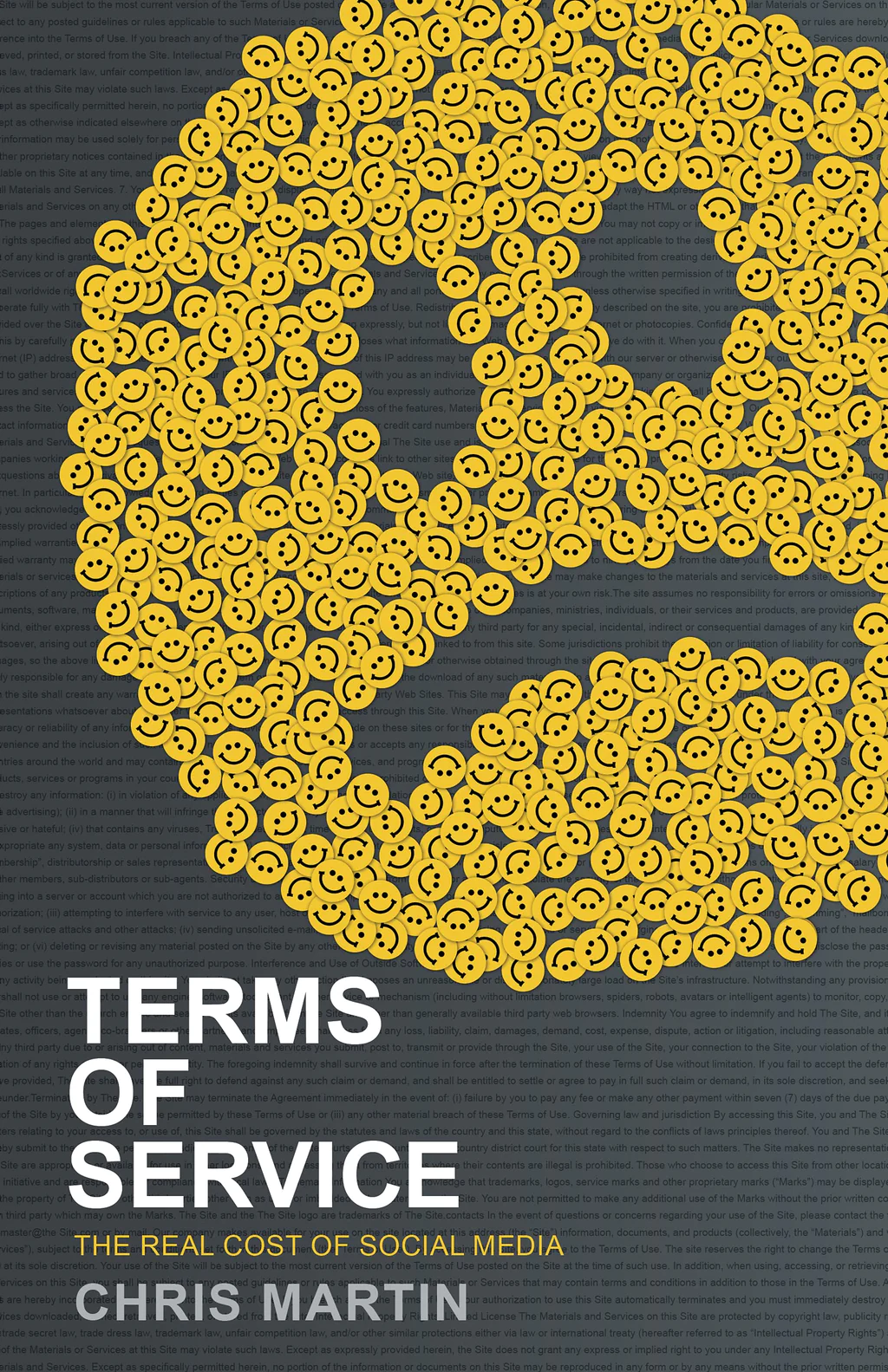
Chris Martin
Reviewed by: Gregory E. Reynolds
Terms of Service: The Real Cost of Social Media, by Chris Martin. B&H, 2022. Paperback, 224 pages, $17.49 (Amazon). Reviewed by OP minister and editor of Ordained Servant Gregory E. Reynolds.
The author of this important new book was born in 1990 and is a “digital native,” brought up in the internet world. This makes his serious critique of social media especially poignant, since most in his generation are uncritical users of the internet and social media. Martin is also deeply involved with the internet and social media professionally.
Beginning with a fish-in-the-water metaphor, Martin illustrates our lack of awareness of our immediate and pervasive electronic environment. He asserts that the “social internet is brilliant and obscene” (2). The point of the book is to demonstrate that the water is toxic (3–4)—what purports to serve man ends up enslaving us (6).
The book divides into three sections: 1) “How We Got Here,” 2) “Five Ways the Social Internet Shapes Us,” 3) “Where Do We Go from Here?”
Part 1 traces the presence of the internet in our lives from its limited academic and military origins to its invasion of our homes and souls (13–18). The internet has always been social, but the social media, and the mobile media have vastly expanded electronic connections (16). “[T]he fear of missing out” and consequent “addiction” (35) make users so obsessed with what is going on online that off-line life fades into the background (36). What is insidious about this is that the media themselves are designed to promote addiction (38). What people assume are neutral tools are making tools of us. Martin also shows how social media create “virtual tribes” of like-minded people, not expanding our horizons as the early promoters claimed. This in turn undermines empathy (47), as one tribe develops intolerance for others.
Part 2 explores the ways that the social internet shapes us. In sum, we falsely believe that attention assigns value, and so what is popular, or trending, must be important, thus we must pay attention (63). This phenomenon has great cash value for advertising and sales. But our identities as well as our privacy are at stake.
Social media also shape us by alluring us to pursue affirmation instead of truth (97). They amplify our sinful tendency to demonize people with whom we disagree. Martin warns of the lie that “people who disagree with me cause me harm” (113), and should thus be canceled, leaving little room for considering contrary ideas (114).
Part 3 provides tools “to more wisely engage the social internet” (147). The study of history, and our past heritage, gives perspective to the present and expands our view of other cultures’ ideas and people, helping us to understand alternative perspectives, thus encouraging empathy.
Martin counsels refraining from using the social internet as a digital soapbox. By not responding, we are quenching our natural sinful tendency to spout off—taking a kind of verbal sabbath. This requires humility. “Pride is integral to so much of the disfunction we find online” (175). Looking at the nature of the medium of the social network, Martin observes that “no algorithm is engineered to promote reconciliation and forgiveness. All algorithms are engineered to favor the spread of conflict and argumentation” (180).
Martin’s plea to establish accountability fails to drill down on the way that the internet alters social space and does an end run around traditional gatekeepers, invading households and hearts. He observes that “mental health statistics are growing more discouraging as social media use is increasing” (185).
He concludes by recommending embodied friendship. “The social internet has cheapened friendship. . . . I think many of us have become so fused with our phones that we have forgotten the magic of real, embodied friendship” (192–193).
While Martin warns about several sins and recommends Christian virtues, his desire to reach a non-Christian audience blunts the vital connection between Christian virtues and Christ. His concluding section, “We Cannot Do It Alone,” recommends wise human helpers, but never mentions our greatest helper, the Holy Spirit. Despite these weaknesses, his many excellent insights make the book worthwhile.
The internet is not just a technology, it is a philosophy and way of life. Romans 12:1–2 should lead us in the direction of leaving, or at least wisely navigating, this lake whose water is toxic and enslaving.
November 16, 2025
November 09, 2025
November 02, 2025
October 26, 2025
October 19, 2025
October 05, 2025
Raising Sexually Faithful Kids and
Parenting Boys and Girls in a Gender-Confused World
September 28, 2025
© 2025 The Orthodox Presbyterian Church